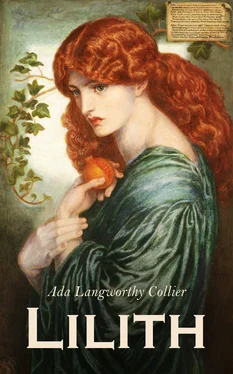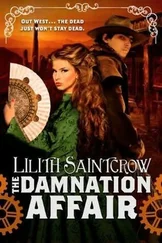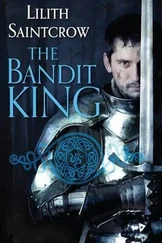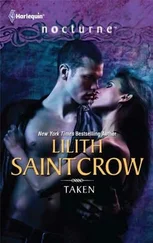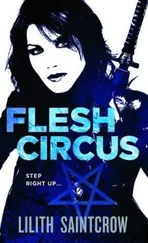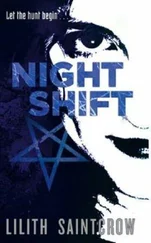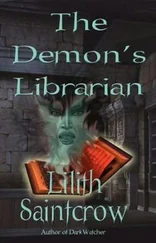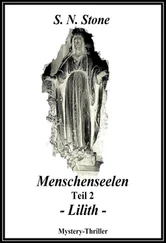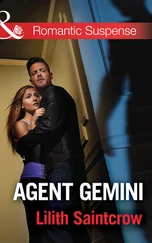Ada Langworthy Collier
e-artnow, 2020
Contact: info@e-artnow.org
EAN 4064066060770
PREFACE.
TO VALERIA.
BOOK I.
BOOK II.
BOOK III.
BOOK IV.
BOOK V.
Table of Contents
That Eve was Adam’s second wife was a common Rabbinic speculation. Certain commentators on Genesis adopted this view, to account for the double account of the creation of woman, in the sacred text, first in Genesis i. 27, and second in Genesis xi. 18. And they say that Adam’s first wife was named Lilith, but she was expelled from Eden, and after her expulsion Eve was created. Abraham Ecchelensis gives the following account of Lilith and her doings: “There are some who do not regard spectres as simple devils, but suppose them to be of a mixed nature—part demoniacal, part human, and to have had their origin from Lilith, Adam’s first wife, by Eblis, prince of the devils. This fable has been transmitted to the Arabs, from Jewish sources, by some converts of Mohamet from Cabbalism and Rabbinism, who have transferred all the Jewish fooleries to the Arabs. They gave to Adam a wife formed of clay, along with Adam, and called her Lilith, resting on the Scripture: ‘Male and female created He them.’ ”— Legends of the Patriarchs and Prophets.—Baring Gould.
Lilith or Lilis.—In the popular belief of the Hebrews, a female spectre in the shape of a finely dressed woman, who lies in wait for, and kills children. The old Rabbins turned Lilith into a wife of Adam, on whom he begat demons and who still has power to lie with men and kill children who are not protected by amulets with which the Jews of a yet later period supply themselves as a protection against her. Burton in his Anatomy of Melancholy tells us: “The Talmudists say that Adam had a wife called Lilis, before he married Eve, and of her he begat nothing but devils.” A commentator on Skinner, quoted in the Encyclopædia Metropolitana , says that the English word Lullaby is derived from Lilla, abi (begone, Lilith)! In the demonology of the Middle Ages, Lilis was a famous witch, and is introduced as such in the Walpurgis night scene in Goethe’s “Faust.”— Webster’s Dictionary.
Our word Lullaby is derived from two Arabic words which mean “Beware of Lilith!”— Anon.
Lilith, the supposed wife of Adam, after she married Eblis, is said to have ruled over the city of Damascus.— Legends of the Patriarchs and Prophets.—Baring Gould.
From these few and meagre details of a fabled existence, which are all that the author has been able to collect from any source whatever, has sprung the following poem. The poet feels quite justified in dissenting from the statements made in the preceding extracts, and has not drawn Lilith as there represented—the bloodthirsty sovereign who ruled Damascus, the betrayer of men, the murderer of children. The Lilith of the poem is transferred to the more beautiful shadow-world. To that country which is the abode of poets themselves. And about her is wrapt the humanizing element still, and everywhere embodied in the sweetest word the human tongue can utter— lullaby . Some critics declare that true literary art inculcates a lofty lesson—has a high moral purpose. If poets and their work must fall under this rigorous rule, then alas “Lilith” will knock at the door of public opinion with a trembling hand indeed. If the poem have either moral aim or lesson of any kind (which observe, gentle critic, it is by no means asserted that it has), it is simply to show that the strongest intellectual powers contain no elements adverse to the highest and purest exercise of the affectional nature. That, in its true condition, the noblest, the most cultured intellect, and the loveliest, sublimest moral and emotional qualities, together weave the web that clothes the world’s great soul with imperishable beauty. The possessor of highest intellectual capacity will be also capable of highest developments in the latter qualities. The woman of true intellect is the woman of truest affection. For the rest let Lilith speak, whose life dropped unrecorded from the earliest world. It is the poet’s hope that the chords of the mother-heart universal will respond to the song of the childless one. That in the survival of that one word lullaby , may be revivified the pathetic figure of one whose home, whose hope, whose Eden passed to another. Whose name living in the terrors of superstitious peoples, now lingers in Earth’s sweetest utterance. That Pagan Lilith, re-baptized in the pure waters of maternal love, shall breathe to heathen and Christian motherhood alike, that most sacred love of Earth still throbbing through its tender lullaby.
A. L. C.
Table of Contents
Broideries and ancient stuffs that some queen
Wore; nor gems that warriors’ hilts encrusted;
Nor fresh from heroes’ brows the laurels green;
Nor bright sheaves by bards of eld entrusted
To earth’s great granaries—I bring not these.
Only thin, scattered blades from harvests gleaned
Erewhile I plucked, may happen thee to please.
So poor indeed, those others had demeaned
Themselves to cull; or from their strong, firm hands
Down dropped about their feet with careless laugh,
Too broken for home gathering, these strands,
Or else more useless than the idle chaff.
But I have garnered them. Yet, lest they seem
Unworthy, and so shame Love’s offering,
Amid the loose-bound sheaf stray flowers gleam.
And fairer seeming make the gift I bring,
Lilies blood-red, that lit the waving field,
And now are knotted through the golden grain.
Thou wilt not scorn the tribute I now yield,
Nor even deem the foolish flowers vain.
So take it, and if still too slight, too small
It seem, think ’tis a bloom that grew anear,
In other Springtime, the old garden wall.
(That pale blue flower you will remember, dear.
The heedless world, unseeing, passed it by,
And left it to the bee and you.) Then say,
“Because the hands that tended it are nigh
No more, and little feet are gone away
That round it trampled down the beaded grass,
Sweeter to me it is than musky spray
Of Southland; and dearer than days that pass
In other summer-tides.” This simple song
Read so, dear heart; Nay, rather white-souled one,
Think ’tis an olden echo, wandered long
From a low bed where ’neath the westering sun
You sang. And if your lone heart ever said
“Lo, she is gone, and cannot more be mine,”
Say now, “She is not changed—she is not wed—
She never left her cradle bed. Still shine
The pillows with the print of her wee head.”
So, mother-heart, this song, where through still rings
The strain you sang above my baby bed,
I bring. An idle gift mayhap, that clings
About old days forgotten long, and dead.
This loitering tale, Valeria, take.
Perchance ’tis sad, and hath not any mirth,
Yet love thou it, for the weak singer’s sake,
And hold it dear, though yet is little worth,
This tale of Elder-world: of earth’s first prime,
Of years that in their grave so long have lain,
To-day’s dull ear, through poets’ tuneful rhyme
No echo hears, nor mocking friar’s strain.
July 17, 1884.
LILITH.
Table of Contents
Pure as an angel’s dream shone Paradise.
Blue mountains hemmed it round; and airy sighs
Of rippling waters haunted it. Dim glades,
Читать дальше
